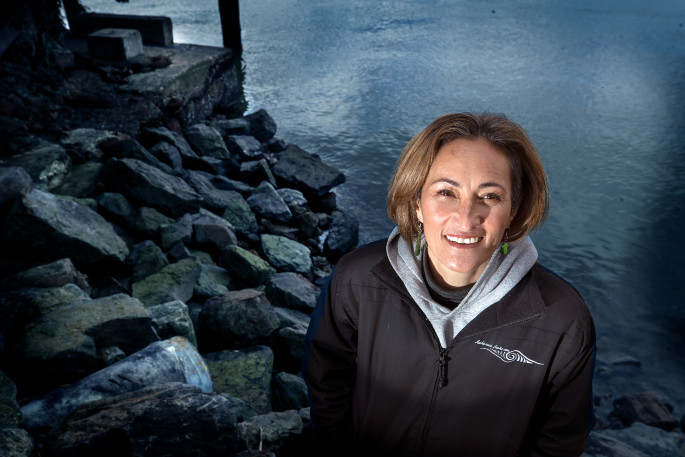Te Puke woman and University of Waikato PhD student Kiri Reihana has become the first Māori PhD pupil to receive the L'Oréal-UNESCO for Women in Science mentoring fellowship.
Only one is granted each year in New Zealand – and Kiri, of Te Rarawa, Ngāi Tūhoe and Whakatōhea descent, is the latest to receive the award.
The mother-of-four, who is halfway through her Environmental Sciences PhD research studying tuangi (cockles) and their impact on the wellbeing of Bay of Plenty's Ōhiwa Harbour, is based at the University's Tauranga campus.
Kiri's research feeds into the Sustainable Seas National Science Challenge, which is focusing on Ōhiwa Harbour.
Family connections
Kiri says the most rewarding part of her project is working outdoors, and looking at nature in both a micro and macro scale. She loves living in the BOP, saying it's perfect as she is a 'real beach person”.
Kiri was keen to pick up her project because her mum is a descendant of local tribes Whakatōhea and Ngāi Tuhoe.
'One of my uncles also sits on the iwi advisory group. I thought it sounded like a sign, and I was supposed to go in this direction.”
'It's a lot more laidback than Auckland too. My kids didn't like it at first, but now they say: ‘This was the best decision you ever made.'”
'There's also that iwi link we have; my children are very connected to this land.”
Kiri began pursuing environmental science nearly 15 years ago while working as an environmental architect. 'One of my dad's friends asked if I'd like to come to some night classes,” says Kiri.
'He told me it was six weeks' long. It was an Awanuiarangi course in Auckland. We did some taxonomy, which is naming seashells, bugs and plants by their Latin, Māori and English names.
'I said: ‘This is really cool' and my dad's friend told me it was a three-and-a-half year degree. I said: ‘Hang on a minute, what happened to the six weeks of night classes?'” laughs Kiri.
Rena spill
Soon after scholarships came up, and Kiri was able to work on the Rena oil spill in Tauranga that captured international attention at the time.
'That really got me into it. I was working on environmental architecture anyway, but this really honed in on that environmental side.”
For her PhD, Kiri also enjoys working alongside many iwi that work in the harbour.
'My project was initially meant to be studying cockles and pipi, but after we mapped the cockle beds we realised they were so expensive that we had to stick to one species.
'They're absolutely massive, even the iwi were really surprised, so it was a really positive thing to see.”
Kiri heads to Melbourne in November for the L'Oréal-Unesco Women in Science conference with the other L'Oréal fellows.
'We get flown over to attend as mentees.”
Beforehand, she'll head to Spain for a Claude McCarthy Fellowship for the Estuarine, Coastal Shelf Association (ECSA59) conference, and has ‘tagged on' a visit her brother Phillip, who lives in Berli



0 comments
Leave a Comment
You must be logged in to make a comment.